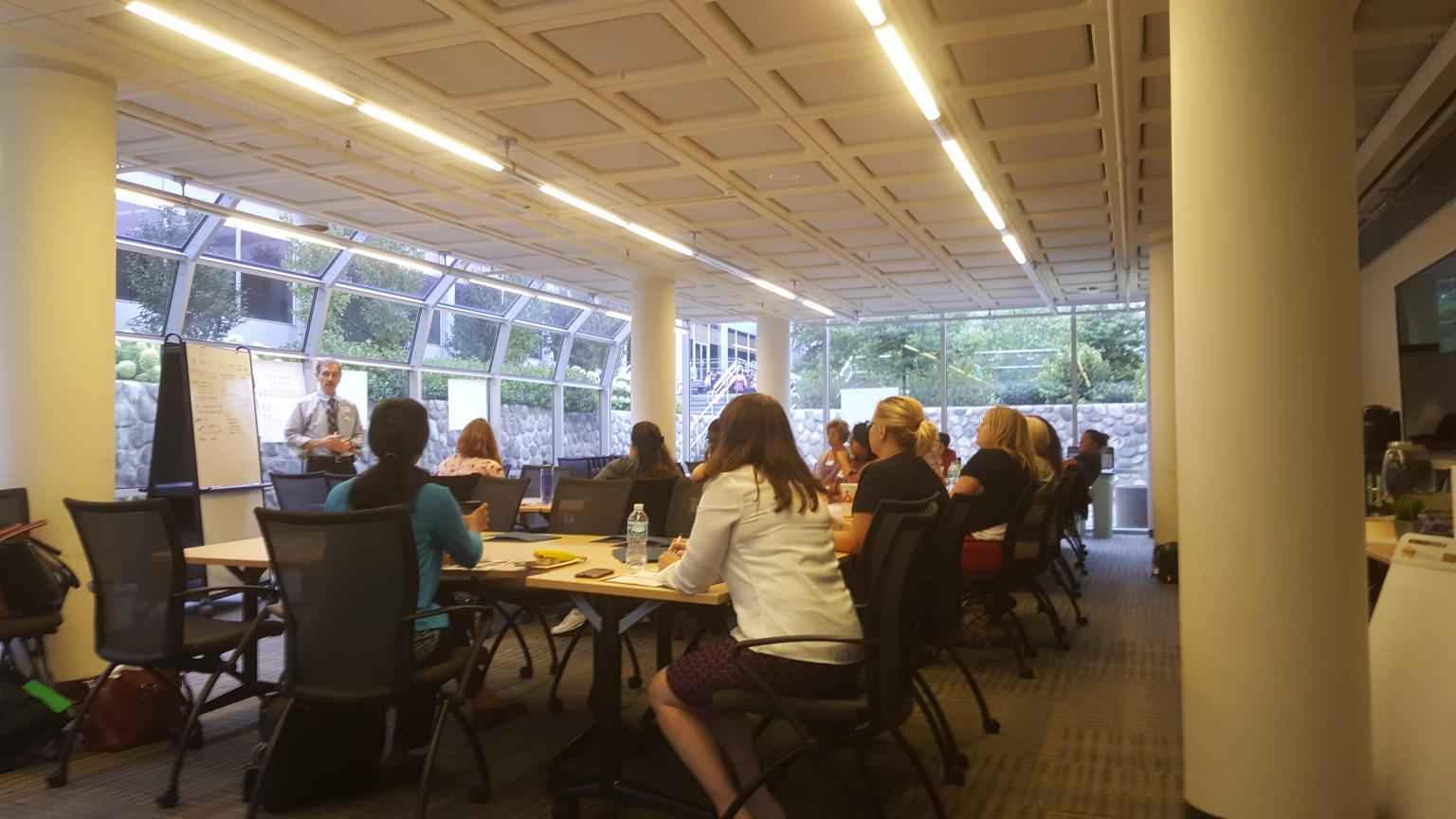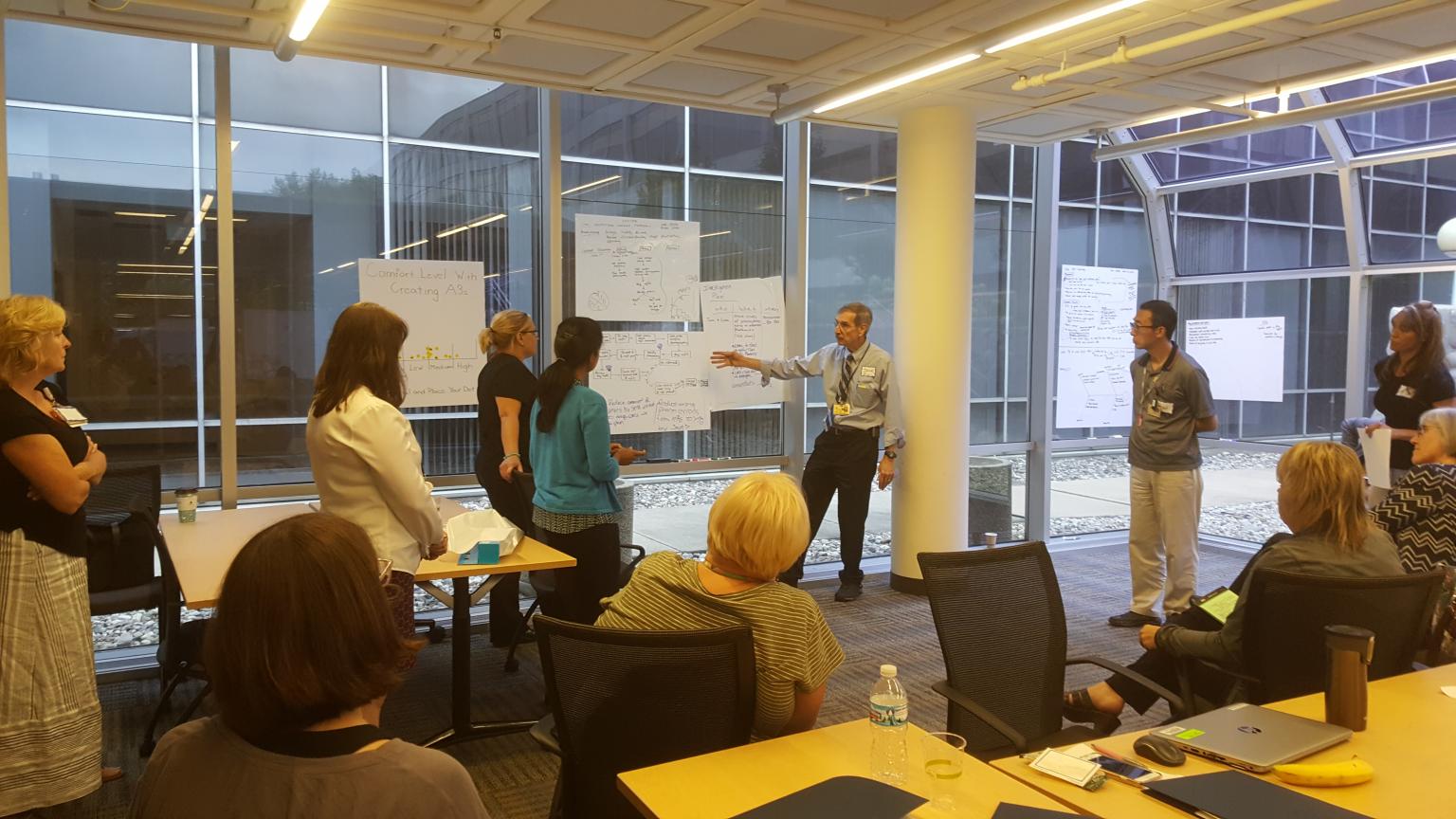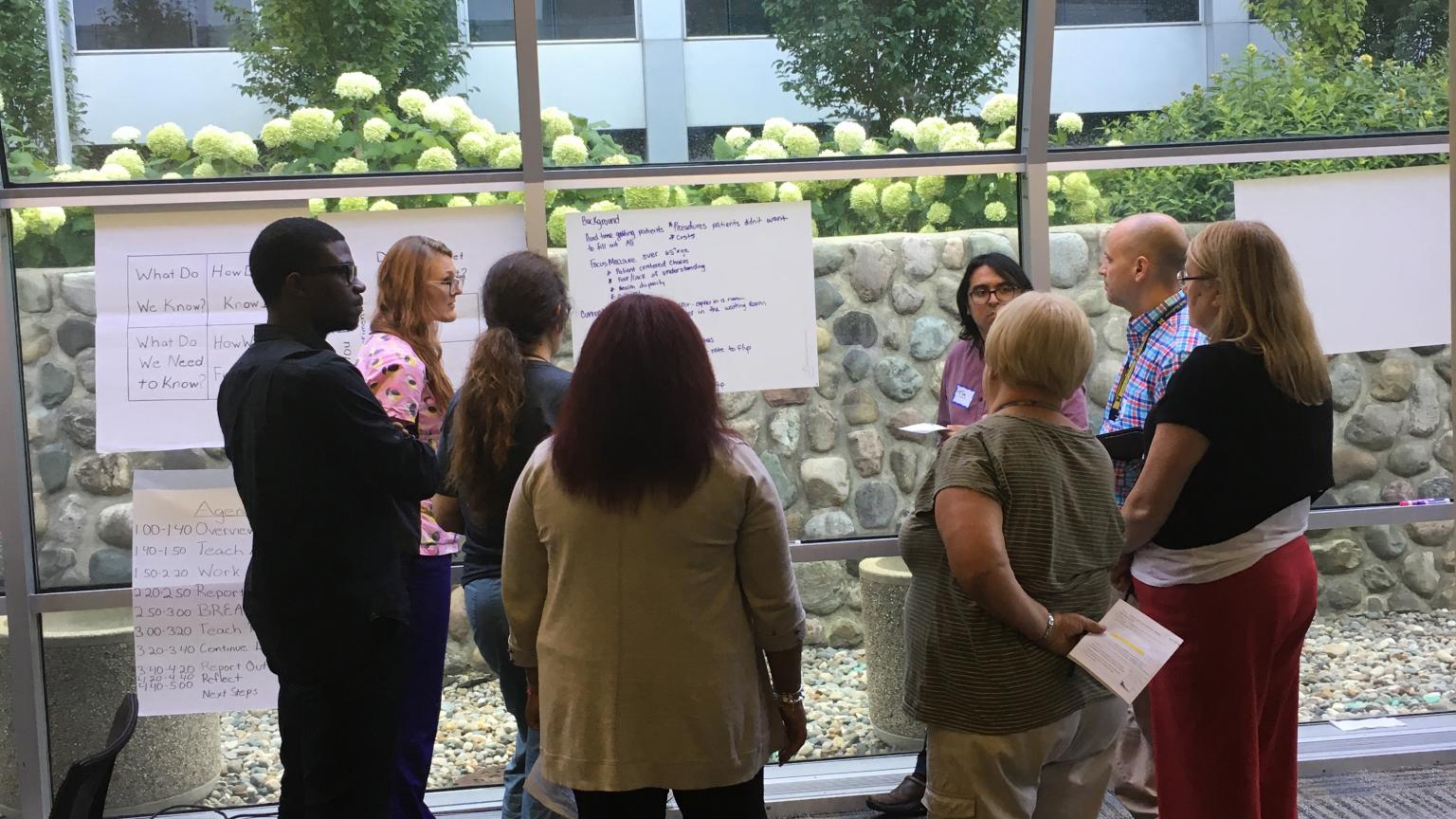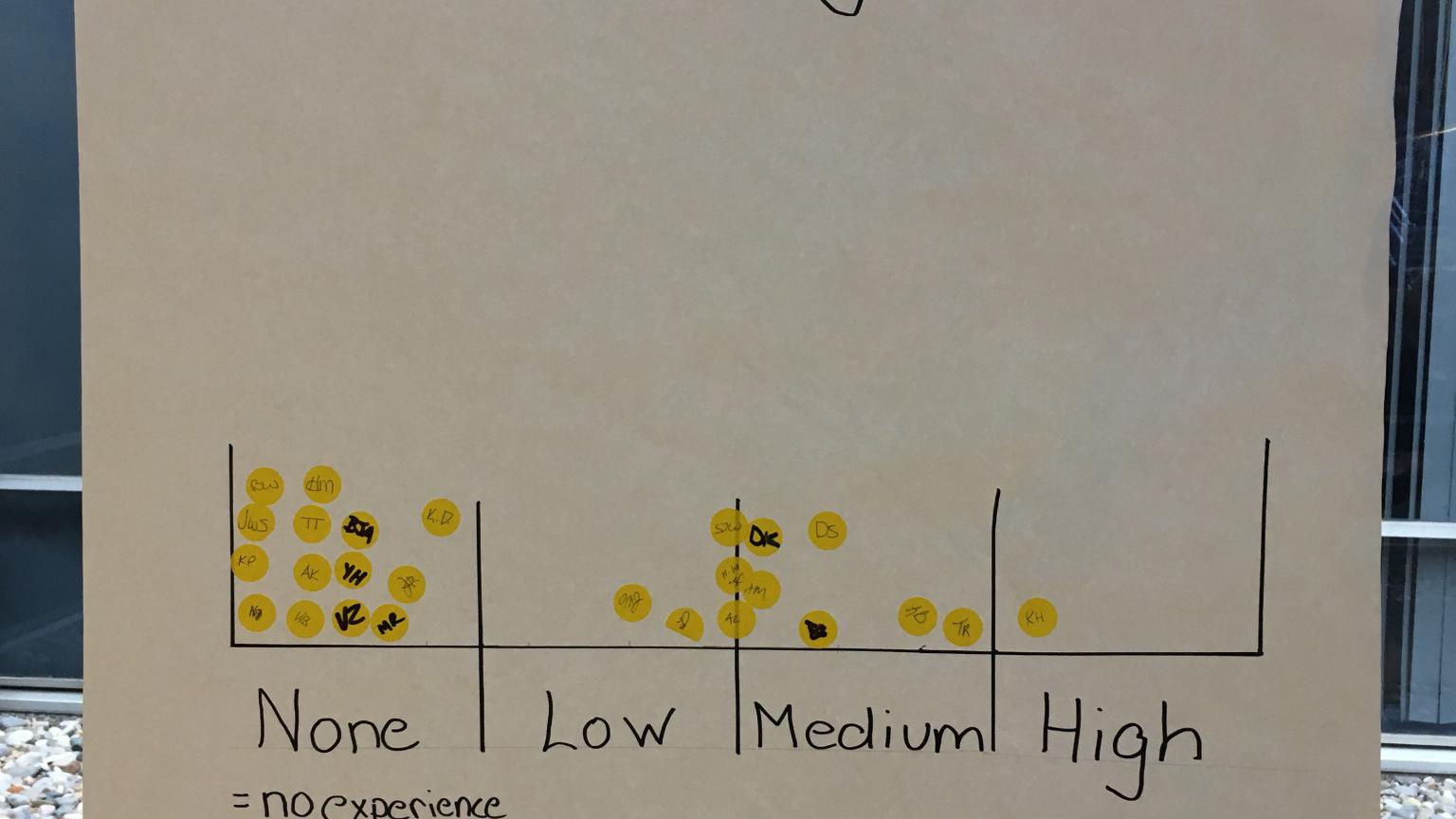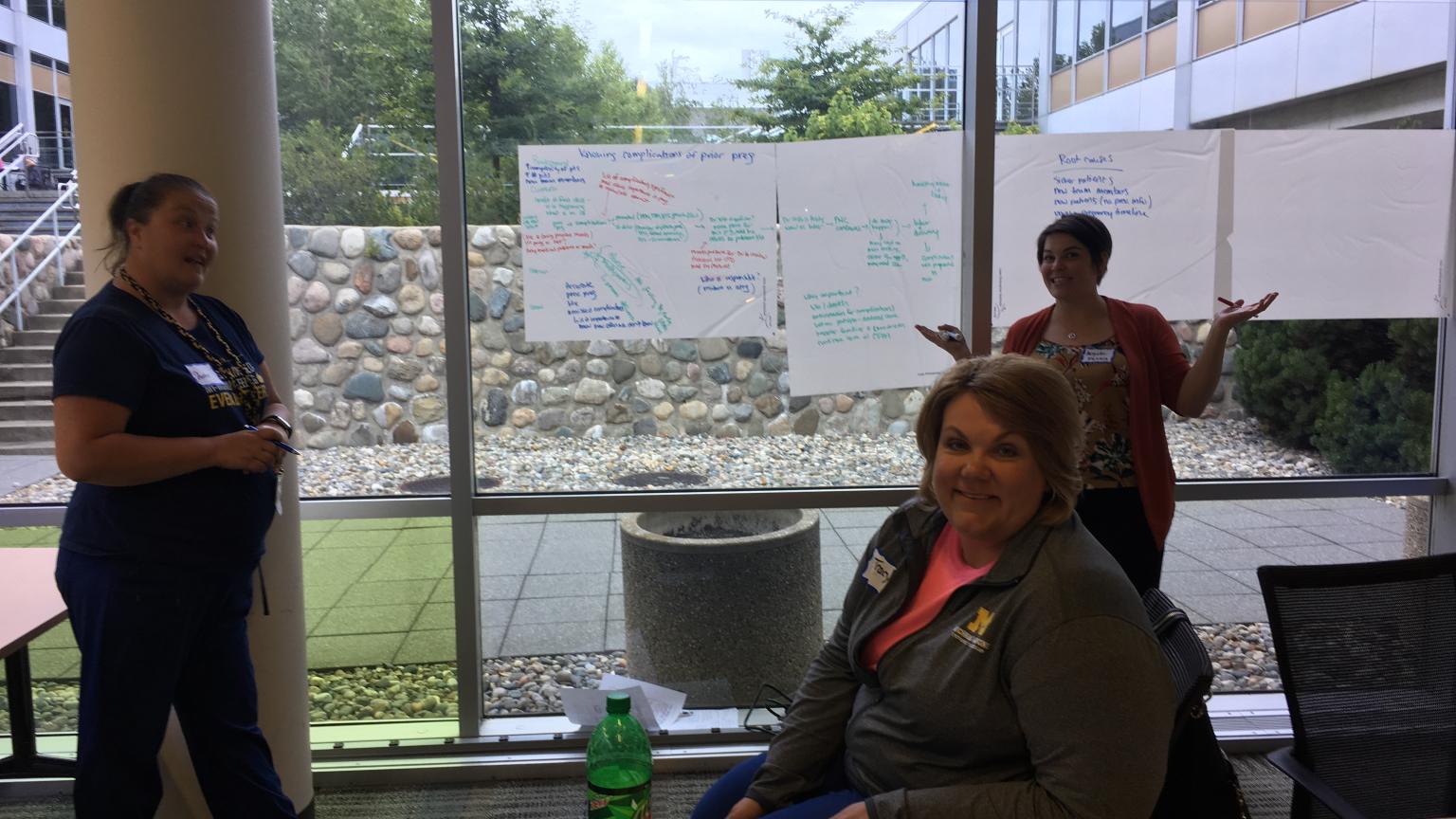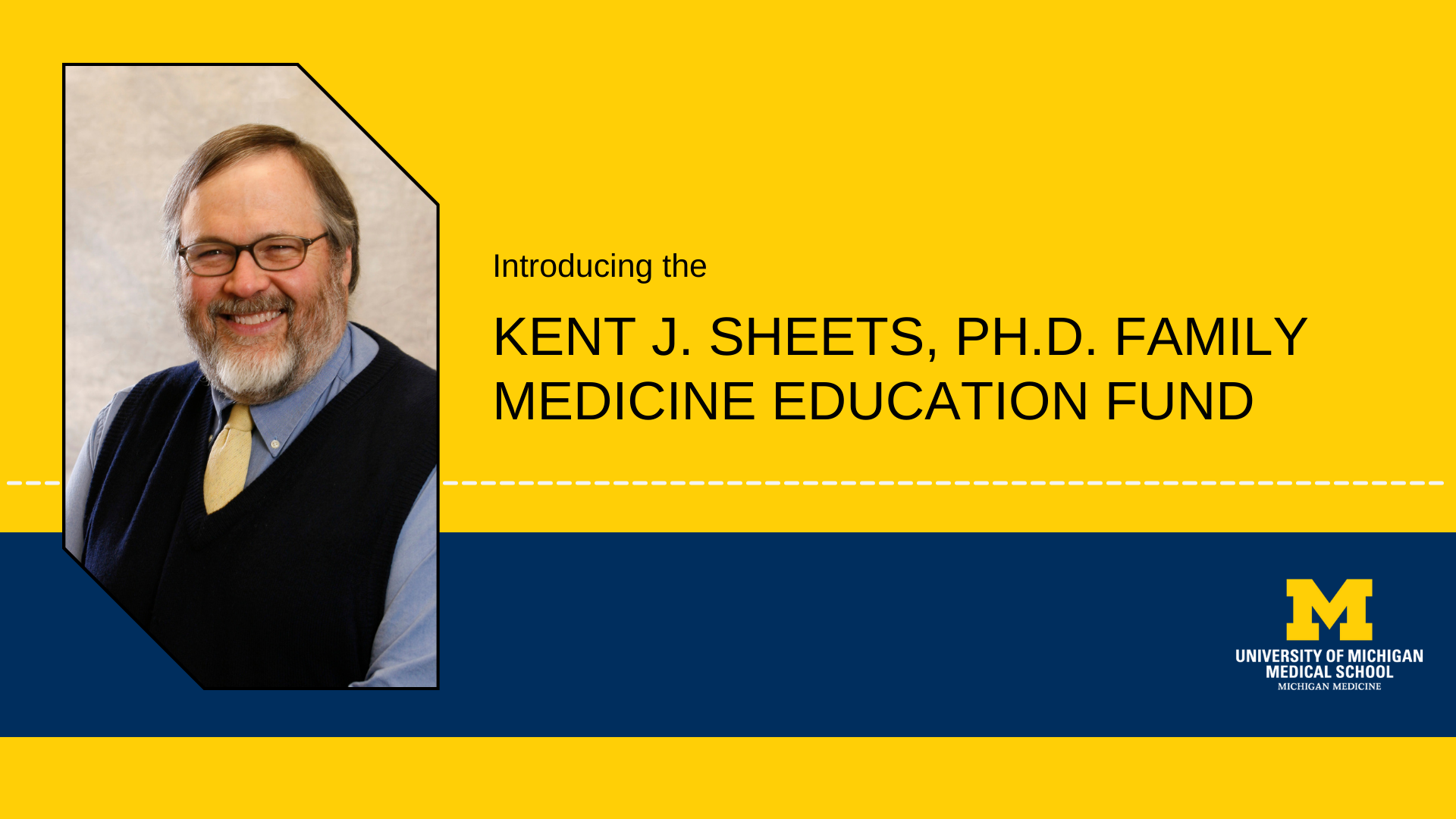Clinical team members from across the Department gathered for a special training session entitled “A3 Problem Solving for Clinical Leaders.” The workshop, facilitated by Jack Billi, M.D., professor of internal medicine and learning Health sciences, was co-sponsored by Medical School Faculty Development and the Quality Department to cultivate clinical leaders’ scientific problem solving skills.
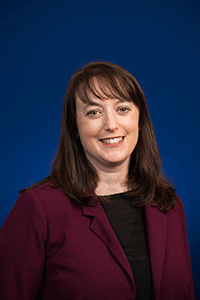
Kathryn M. Harmes, M.D., assistant professor and associate chair for population medicine, brought the group together to build and strengthen problem solving muscles across the Department.
The purpose of this training was to teach faculty and staff about scientific problem solving using specific projects that they chose from their own clinic. A goal is to create problem solvers at all levels of the Department, engaging and respecting those who know the work because they perform the work.
The workshop presented care teams (physicians, MA’s, RN’s, clerks, clinic managers and panel managers) with skills to improve and redesign the work they do every day. Specifically, the workshop taught attendees to use more precise language to describe the ‘problem,’ provide background on the way things work currently, and gather supporting data and analysis to inform their experiments to make improvements.
The four ‘problems’ addressed by the group were:
- Improving the rate of having a copy of patients’ Advanced Directives in the electronic medical record
- Improve the prescription refill process
- Improve scheduling process to better match patients with their PCP
- Improve the OB intake process for patients new to Michigan Medicine
“The session provided a unique opportunity for faculty and staff members to connect across sites, and improve communication and collaboration,” noted Dr. Harmes.
The group will reconvene later this month where they will gain skills in designing and testing improvements using the Plan/Do/Check/Adjust cycle.

